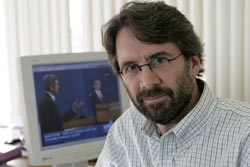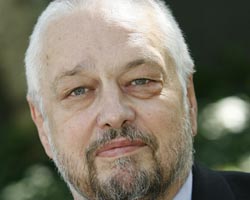Temple University political experts look toward the conventions
|
MICHAEL G. HAGEN Michael G. Hagen conducts polling and research on public policy and election trends in the Philadelphia region and the Commonwealth of Pennsylvania. He is co-author of the The Presidential Campaign of 2000 and the Foundations of Party Politics (2004).
|
 Photo by Joseph V. Labolito/Temple University
Hagen
|
||||||||||
|
Obama campaign will make a difference here,” Hagen said.
|
|||||||||||
|
|
|||||||||||
|
|||||||||||

